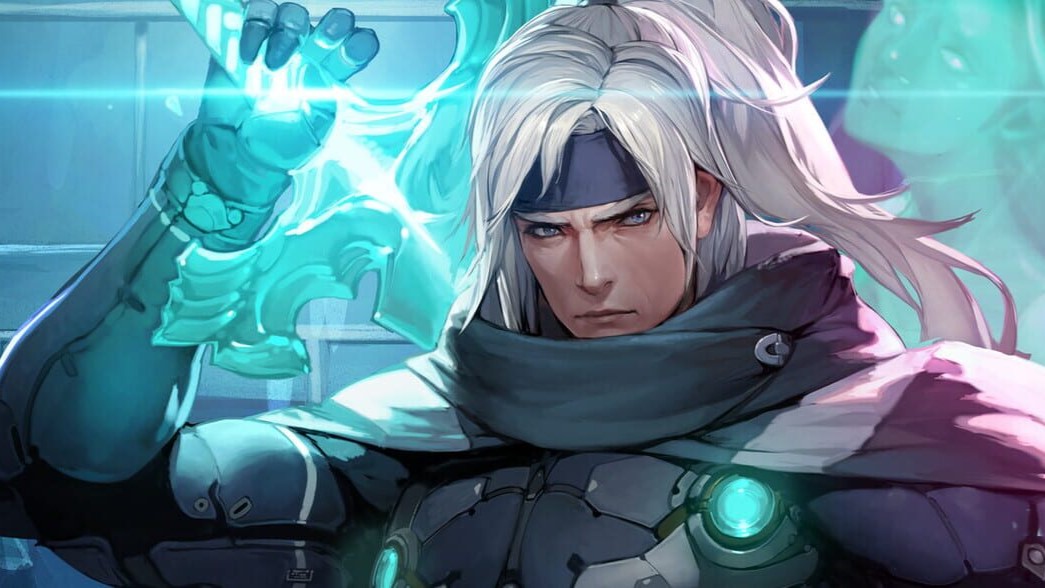
There's a certain degree of predictability to the metroidvania genre. The opening area is the part where the story takes a moment to emphasise how alone I am, and then makes me do a bit of vanilla jumping and attacking while I pass by all the interesting places I can't go yet but will inevitably have to revisit in a few hours time. I'll see some obviously open passageway that's just a little too high for me to reach and I'll sigh, wondering if this is one of those games where I'll eventually get up there with a double jump, or if it's one of those games where I'll learn how to wall kick instead.
Lots of great games follow this well worn routine, including its namesakes Metroid and Castlevania: Symphony of the Night. It's safe. It's familiar. It works. It's… a bit boring, sometimes.
Blade Chimera, the latest game from the master pixel artists behind Deedlit in Wonder Labyrinth and Drainus, is anything but boring. Within five minutes (literally five minutes, I timed it) I've shot a giant dragon in the face, taken part in a mini homage to Street Fighter 2's famous car-destroying bonus round (and gotten an achievement for it), awakened a talking ghost sword, and spoken via commlink to an established HQ I can actually go and visit.
From that moment on I've got every skill I need to clear the game at my fingertips. I'm jamming my sword straight into walls—almost any walls, and even at various angles—so I can use it as a temporary platform, swinging across gaps like a vampire-killing Belmont's cyberpunk cousin, dodge-rolling through laser beams, and trivialising gauntlets of shotgun-wielding androids with improvised spectral barriers.
Thanks to this built-in flexibility I truly feel like I'm exploring these areas organically, rather than constantly butting up against level design that exists only to show me all the paths I'm not allowed to take until the game says otherwise. Blade Chimera doesn't expect me to scurry about trying to find the Magical Armlet of Remembering How To Push Boxes Across A Flat Surface when I come across a puzzle. I can just do it. And if I need to keep a timed door open, I don't go off in search of some sort of speed boost or magical time-slowing watch: I slam my sword into the pressure plate and leave it in there until I've passed through.
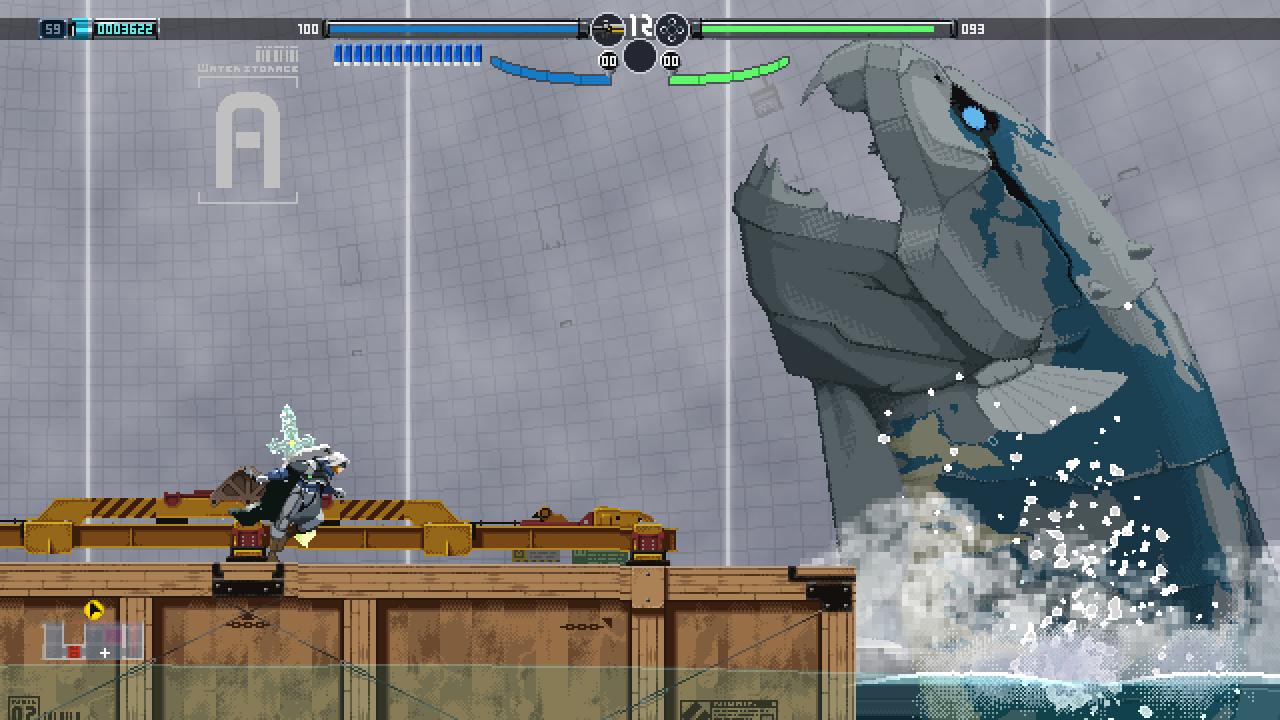
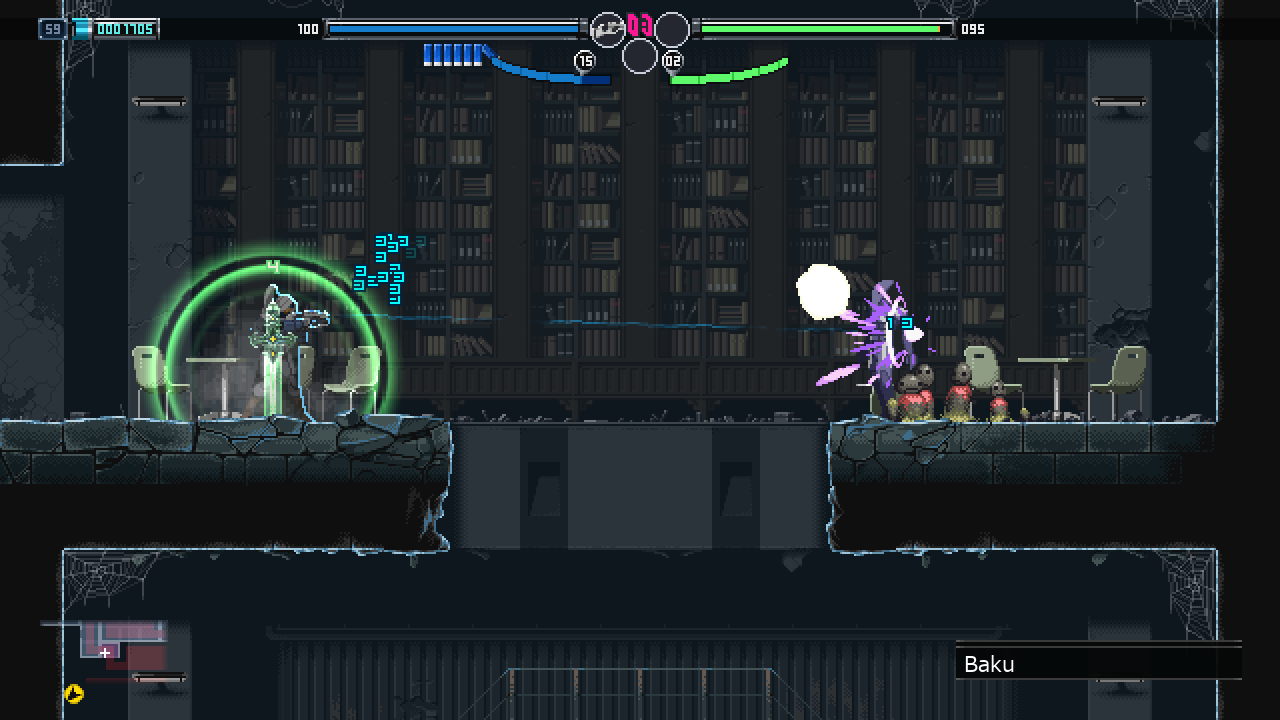
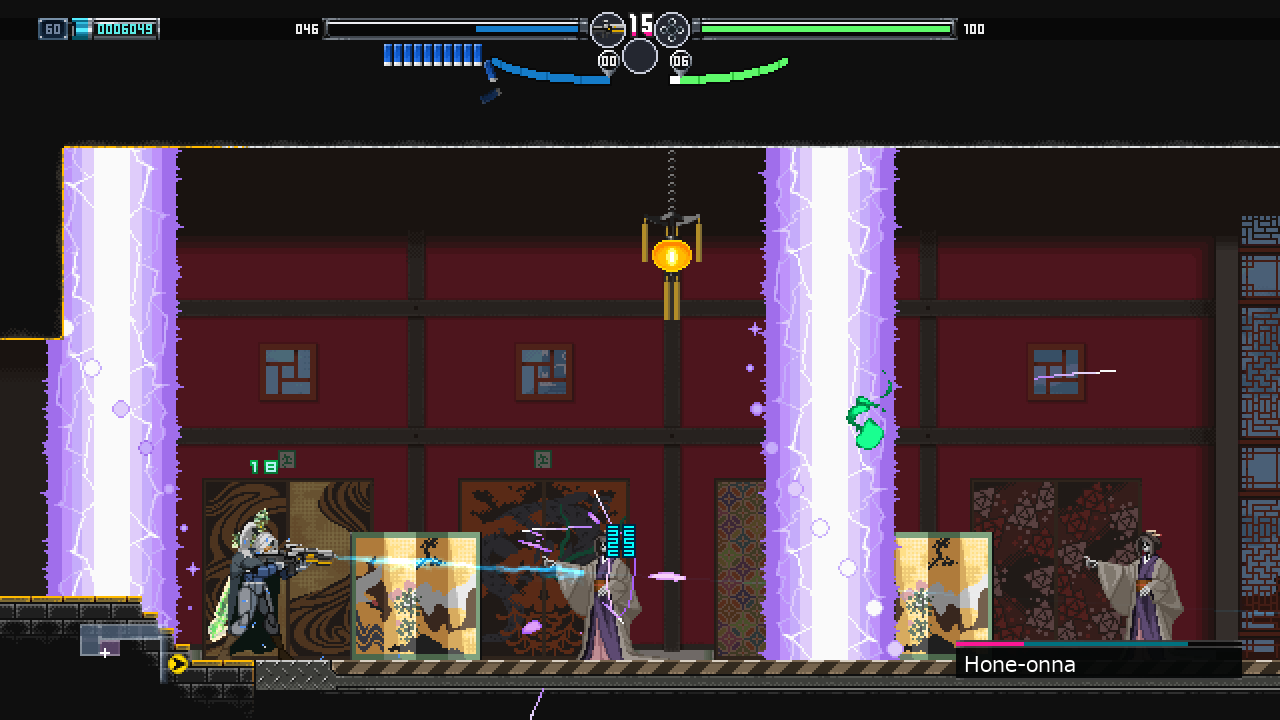
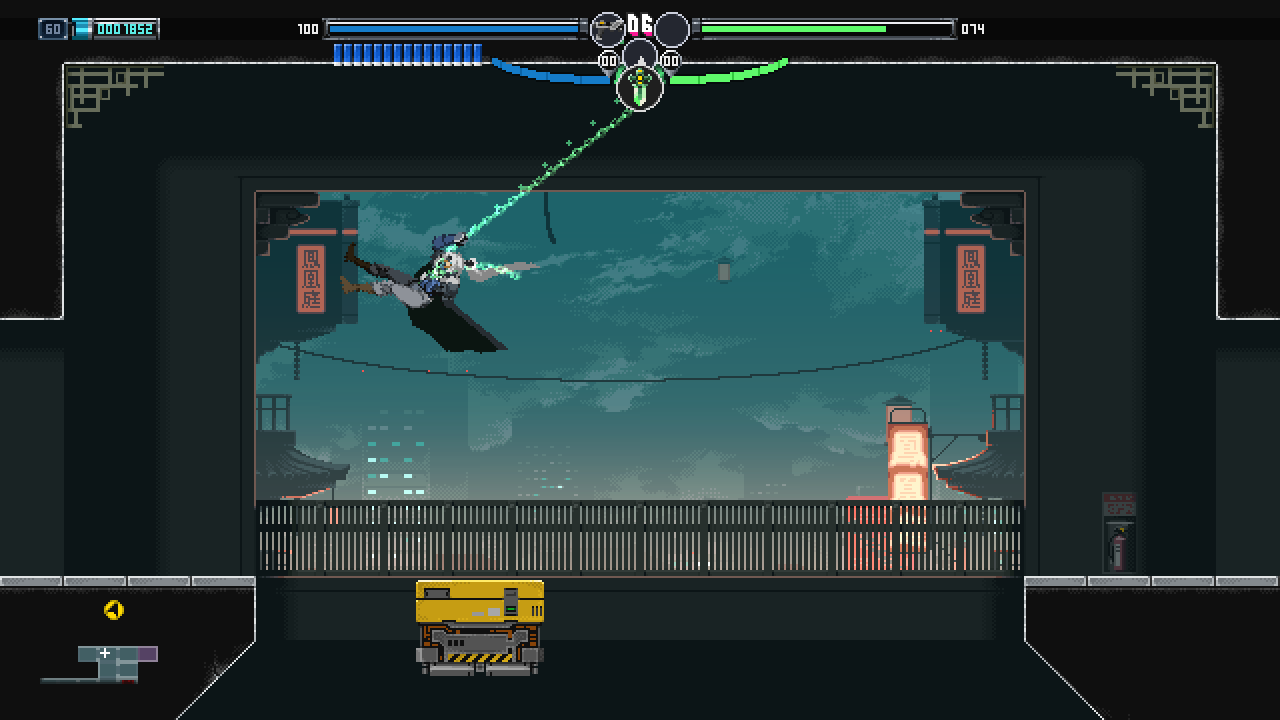
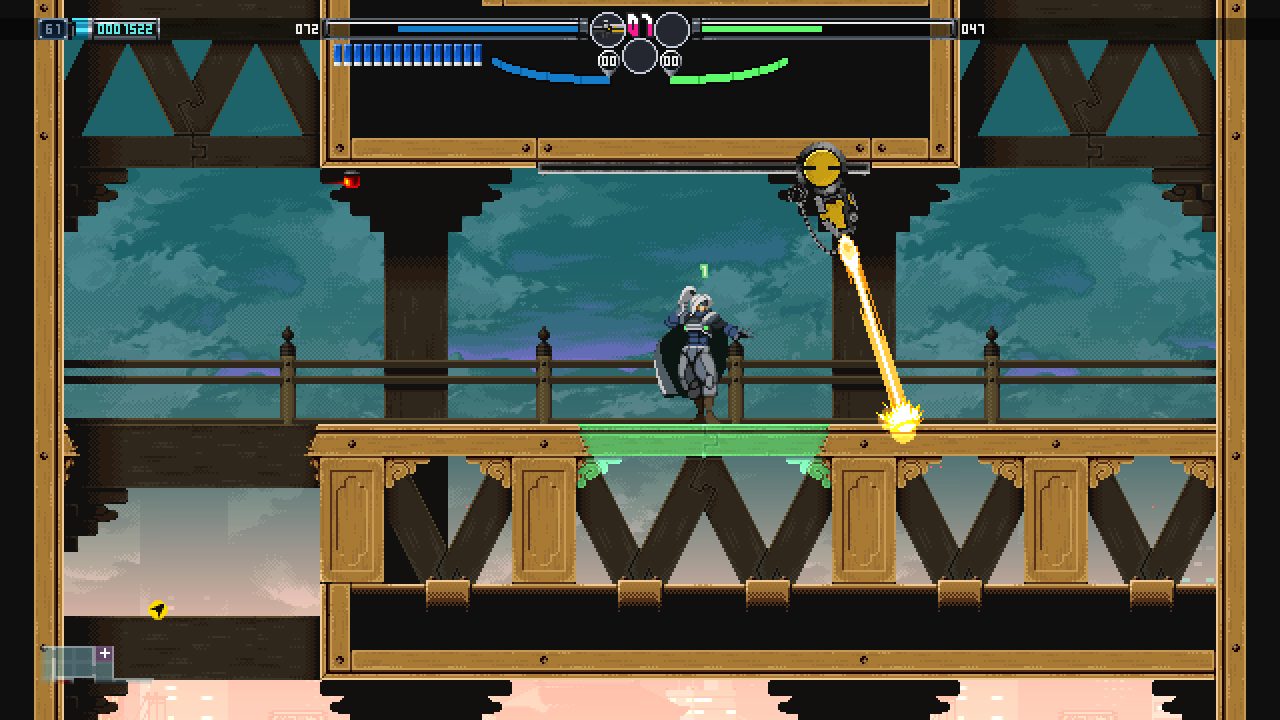
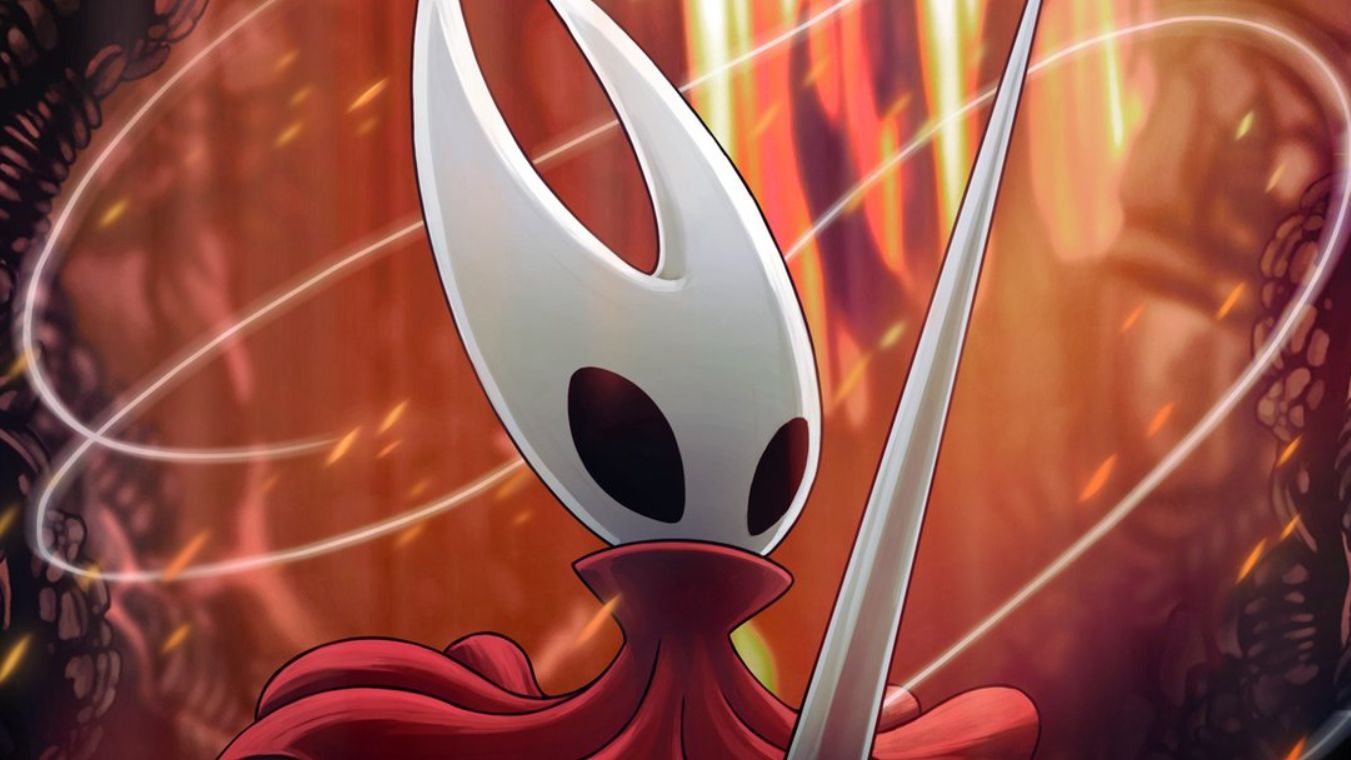
If Blade Chimera whets your appetite...
I don't need to ask the game's permission to do something interesting—I can just apply my existing skillset to my surroundings in whatever way happens to get the job done. This goes so far it even includes using my standard spirit powers to temporarily strap a fully functional ghost jetpack to my back from time to time, as well as finding out the passcode to a locked door by watching the echo of someone else use the keypad. If I see a problem then there's a very good chance I already have everything I need to solve it, encouraging me to adopt a proactive and curious mindset. It's always "How am I going to get past this one?" with Blade Chimera, not "When am I going to find the special ability I need to get past this one?"
Which doesn't mean my personal progress is done and dusted before the game's started. Defeating monsters inevitably rewards level ups which help make me just that little bit harder to kill, and a compact skill tree can be accessed at almost any time, garnishing my existing abilities with optional improvements. Do I want to give my spirit sword some additional special moves? I can, but I don't need to. Do I want to easily warp back to anywhere I've already been, either to quickly clear an optional side quest or just save my game? No problem, although that does mean I miss out on all the XP and extra supplies I potentially could have discovered if I'd bothered to walk.
And on the relatively rare occasions I do find (or buy) something new, like another demon-defeating firearm, there's a good chance it'll be different, rather than better. Ammo capacity, range, firing rate, and even the difference between energy discharges and physical bullets all matter more than simply picking the thing with the highest damage value.
Other pieces of equipment follow a similar thought process; they're extras, not essentials. At one point I came across a flooded area I needed to get through. An aquatic exosuit found nearby made swimming around a little easier (assuming I thought it was worth swapping out another accessory for), but I could already swim and fight underwater and hold my breath for much longer than I needed to anyway. The only thing I needed to do was dive straight in and keep going.
Because the core bases are so thoroughly covered, Blade Chimera has the breathing room to introduce a few creative joke items amongst its pickups. I've found a card case, which claims it's used to organise cards even though I don't have any and all of my exploration so far seems to indicate none exist. I've also discovered a wristwatch that does nothing beyond display my local time in a small part of the screen. I smiled when I picked them up. Not everything has to be about the same old power and defence and best-in-slot options, especially when I'm as capable as I am here by default.
I almost wish I hadn't played this game, because the next metroidvania I try is going to have to work really hard if it wants to feel even half as free, flexible, and empowering as this does. Heck, a lot of the old ones are going to feel stiff and fussy if I play them again. These games are usually all about "lock and key" design, with power-ups serving as the keys that steadily unlock new routes and possibilities. But I am the key here. I am the most useful part of my own toolkit. And I don't want to go back.







